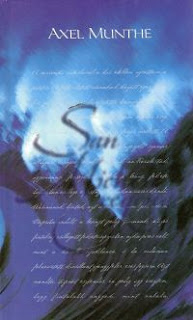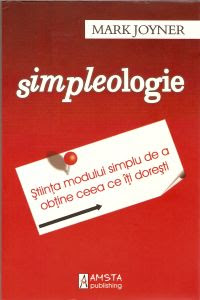PS – @ Erik: Tried adding this comment to your blog but for some reason it won’t let me :-( Have you come across Ambrose Bierce’s DEVIL’S DICTIONARY?
Mary Murphy http://www.stolenchild66.wordpress.com
"Yes, Devil’s Dictionary is in the public domain
http://www.gutenberg.org/ebooks/972"
THE FAILURE OF HOPE AND WANDEL
by Ambrose Bierce
by Ambrose Bierce
From Mr. Jabez Hope, in Chicago, to Mr. Pike Wandel, of New Orleans, December 2, 1877.
I will not bore you, my dear fellow, with a narrative of my journey from New Orleans to this polar region. It is cold in Chicago, believe me, and the Southron who comes here, as I did, without a relay of noses and ears will have reason to regret his mistaken economy in arranging his outfit.
To business. Lake Michigan is frozen stiff. Fancy, O child of a torrid clime, a sheet of anybody's ice, three hundred miles long, forty broad, and six feet thick! It sounds like a lie, Pikey dear, but your partner in the firm of Hope & Wandel, Wholesale Boots and Shoes, New Orleans, is never known to fib. My plan is to collar that ice. Wind up the present business and send on the money at once. I'll put up a warehouse as big as the Capitol at Washington, store it full and ship to your orders as the Southern market may require. I can send it in planks for skating floors, in statuettes for the mantel, in shavings for juleps, or in solution for ice cream and general purposes. It is a big thing!
I inclose a thin slip as a sample. Did you ever see such charming ice?
From Mr. Pike Wandel, of New Orleans, to Mr. Jabez Hope, in Chicago, December 24, 1877.
Your letter was so abominably defaced by blotting and blurring that it was entirely illegible. It must have come all the way by water. By the aid of chemicals and photography, however, I have made it out. But you forgot to inclose the sample of ice.
I have sold off everything (at an alarming sacrifice, I am sorry to say) and inclose draft for net amount. Shall begin to spar for orders at once. I trust everything to you--but, I say, has anybody tried to grow ice in this vicinity? There is Lake Ponchartrain, you know.
From Mr. Jabez Hope, in Chicago, to Mr. Pike Wandel, of New Orleans, February 27, 1878.
Wannie dear, it would do you good to see our new warehouse for the ice. Though made of boards, and run up rather hastily, it is as pretty as a picture, and cost a deal of money, though I pay no ground rent. It is about as big as the Capitol at Washington. Do you think it ought to have a steeple? I have it nearly filled--fifty men cutting and storing, day and night--awful cold work! By the way, the ice, which when I wrote you last was ten feet thick, is now thinner. But don't you worry; there is plenty.
Our warehouse is eight or ten miles out of town, so I am not much bothered by visitors, which is a relief. Such a giggling, sniggering lot you never saw!
It seems almost too absurdly incredible, Wannie, but do you know I believe this ice of ours gains in coldness as the warm weather comes on! I do, indeed, and you may mention the fact in the advertisements.
From Mr. Pike Wandel, of New Orleans, to Mr. Jabez Hope, in Chicago, March 7, 1878.
All goes well. I get hundreds of orders. We shall do a roaring trade as "The New Orleans and Chicago Semperfrigid Ice Company." But you have not told me whether the ice is fresh or salt. If it is fresh it won't do for cooking, and if it is salt it will spoil the mint juleps.
Is it as cold in the middle as the outside cuts are?
From Mr. Jebez Hope, from Chicago, to Mr. Pike Wandel, of New Orleans, April 3, 1878.
Navigation on the Lakes is now open, and ships are thick as ducks. I'm afloat, en route for Buffalo, with the assets of the New Orleans and Chicago Semperfrigid Ice Company in my vest pocket. We are busted out, my poor Pikey--we are to fortune and to fame unknown. Arrange a meeting of the creditors and don't attend.
Last night a schooner from Milwaukee was smashed into match-wood on an enormous mass of floating ice--the first berg ever seen in these waters. It is described by the survivors as being about as big as the Capital at Washington. One-half of that iceberg belongs to you, Pikey.
The melancholy fact is, I built our warehouse on an unfavorable site, about a mile out from the shore (on the ice, you understand), and when the thaw came--O my God, Wannie, it was the saddest thing you ever saw in all your life! You will be so glad to know I was not in it at the time.
What a ridiculous question you ask me. My poor partner, you don't seem to know very much about the ice business.










